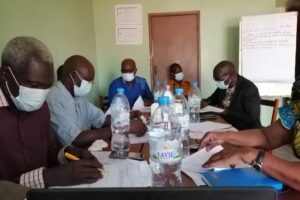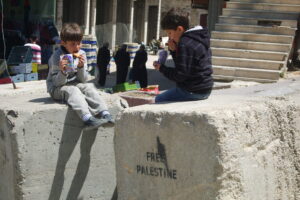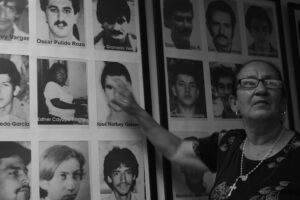Our Publications
What knowledge counts? Local humanitarian knowledge production in protracted conflicts.
A Central African Republic case study
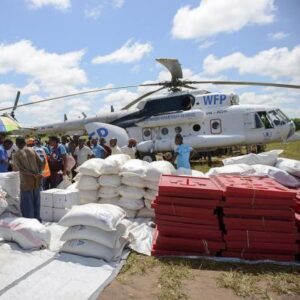 Sound decision-making in protracted conflict is dependent on the quality and the relevance of the information available and the knowledge produced. Despite the fact that gaps in humanitarian knowledge are common, local humanitarian knowledge is rarely taken into consideration and for political, structural and social reasons, not visible and valued.
Sound decision-making in protracted conflict is dependent on the quality and the relevance of the information available and the knowledge produced. Despite the fact that gaps in humanitarian knowledge are common, local humanitarian knowledge is rarely taken into consideration and for political, structural and social reasons, not visible and valued.
The paper examines if and how the complementarity of different forms of humanitarian knowledge can reduce existing gaps as well as power imbalances embedded in the humanitarian system.
Gen-Up : Up-skilling women or de-skilling patriarchy? How TVET can drive wider gender transformation and the decent work agenda in Sub-Saharan Africa
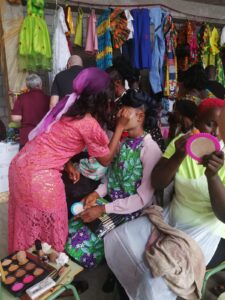 Despite decades of attention to gender equality and vocational training, access to technical and vocational training and decent work in sub-Saharan Africa remains deeply gendered and rooted in unequal and exploitative structures. Seeking to implement a gender-transformative approach, and based on the experiences and aspirations of young female job seekers in precarious situations in Cameroon and Sierra Leone, Gen-Up research has studied ways to get out of survival jobs and to challenge entrenched gender norms and stereotypes to escape persistent discriminatory frameworks and thus improve the resilience of women in precarious situations. The avenues put forward are holistic TVET programs based on social aspects and moral values and empowerment and the proposition of various pathways towards decent work, creating forms of solidarity, collaboration and a contextualized enabling environment, can act both as a lever for gender transformation and also a driver for broader socio-economic change.
Despite decades of attention to gender equality and vocational training, access to technical and vocational training and decent work in sub-Saharan Africa remains deeply gendered and rooted in unequal and exploitative structures. Seeking to implement a gender-transformative approach, and based on the experiences and aspirations of young female job seekers in precarious situations in Cameroon and Sierra Leone, Gen-Up research has studied ways to get out of survival jobs and to challenge entrenched gender norms and stereotypes to escape persistent discriminatory frameworks and thus improve the resilience of women in precarious situations. The avenues put forward are holistic TVET programs based on social aspects and moral values and empowerment and the proposition of various pathways towards decent work, creating forms of solidarity, collaboration and a contextualized enabling environment, can act both as a lever for gender transformation and also a driver for broader socio-economic change.
Gen-Up : Imagining the future through skills: TVET, gender and transitions towards decent employability for young women in Cameroon and Sierra Leone
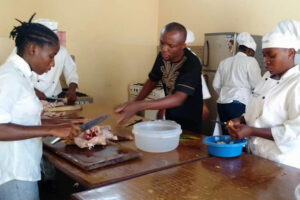 This article presents the results of the Upskilling for Future Generations (Gen-Up) project, a participatory and collaborative project designed with and for young women in Cameroon and Sierra Leone to understand the links between technical and vocational education, gender and decent work. The aim of the project is to provide a gender mentoring model that can help communities challenge gender stereotypes and empower young women to pursue careers in skills-based sectors.
This article presents the results of the Upskilling for Future Generations (Gen-Up) project, a participatory and collaborative project designed with and for young women in Cameroon and Sierra Leone to understand the links between technical and vocational education, gender and decent work. The aim of the project is to provide a gender mentoring model that can help communities challenge gender stereotypes and empower young women to pursue careers in skills-based sectors.
Valuing local humanitarian knowledge: learning from the Central African Republic
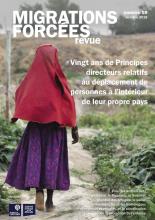
The humanitarian community needs to better identify, collect, harness and disseminate the local humanitarian knowledge that is developed within protracted conflict settings by national NGOs..
RMF 59 (October 2018)
Observatorio de la violencia simbolica mision exploratoria Colombia
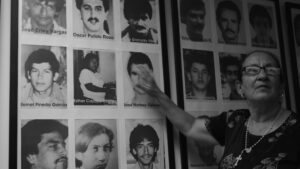 The exploratory mission report carried out in the provinces of Tolima and in Valle del Cauca in Colombia, highlights the importance of symbolic violence in the process of integral reparation for victims of armed conflict.
The exploratory mission report carried out in the provinces of Tolima and in Valle del Cauca in Colombia, highlights the importance of symbolic violence in the process of integral reparation for victims of armed conflict.
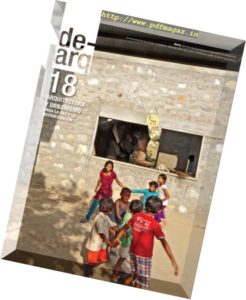 Based on examples from the West Bank and central Colombia, this paper investigates how, in conflict settings, symbolic violence affects populations and their perceptions of place, lifestyle and culture. It also looks at the potential that sense of place and place-making have to enhance conflict transformation and strengthen resilience and symbolic reparation. In extreme environments, symbolic violence in everyday life and in everyday practices has become way to actively impose social or symbolic domination; it can be challenged by community-based peace-building and place-making initiatives.
Based on examples from the West Bank and central Colombia, this paper investigates how, in conflict settings, symbolic violence affects populations and their perceptions of place, lifestyle and culture. It also looks at the potential that sense of place and place-making have to enhance conflict transformation and strengthen resilience and symbolic reparation. In extreme environments, symbolic violence in everyday life and in everyday practices has become way to actively impose social or symbolic domination; it can be challenged by community-based peace-building and place-making initiatives. In front of growing securitisation and colonisation of Hebron’s occupied old city, a set of community initiatives have emerged which seek to build resilience, protect human rights, and counter the economic and social decline of the area.
In front of growing securitisation and colonisation of Hebron’s occupied old city, a set of community initiatives have emerged which seek to build resilience, protect human rights, and counter the economic and social decline of the area. 